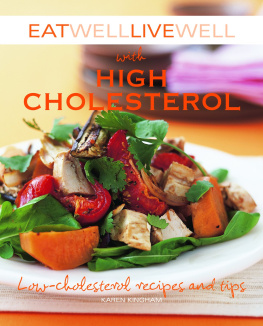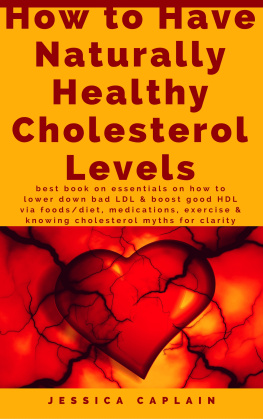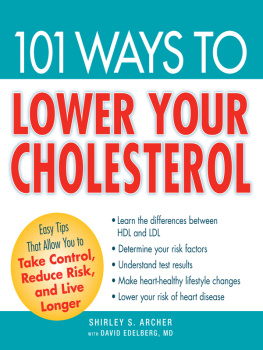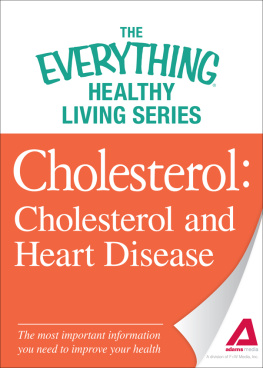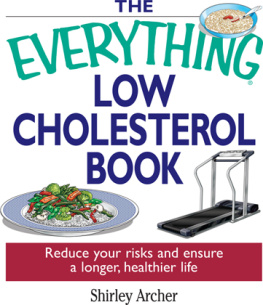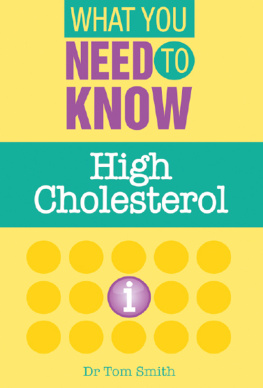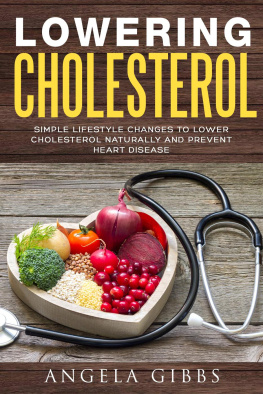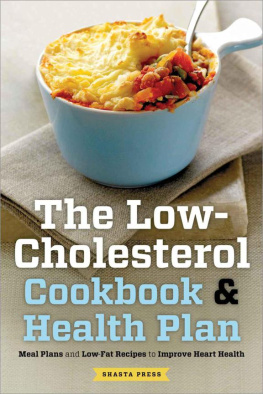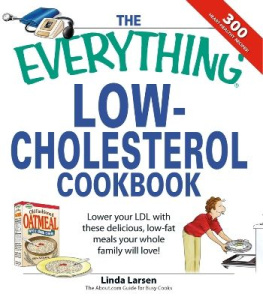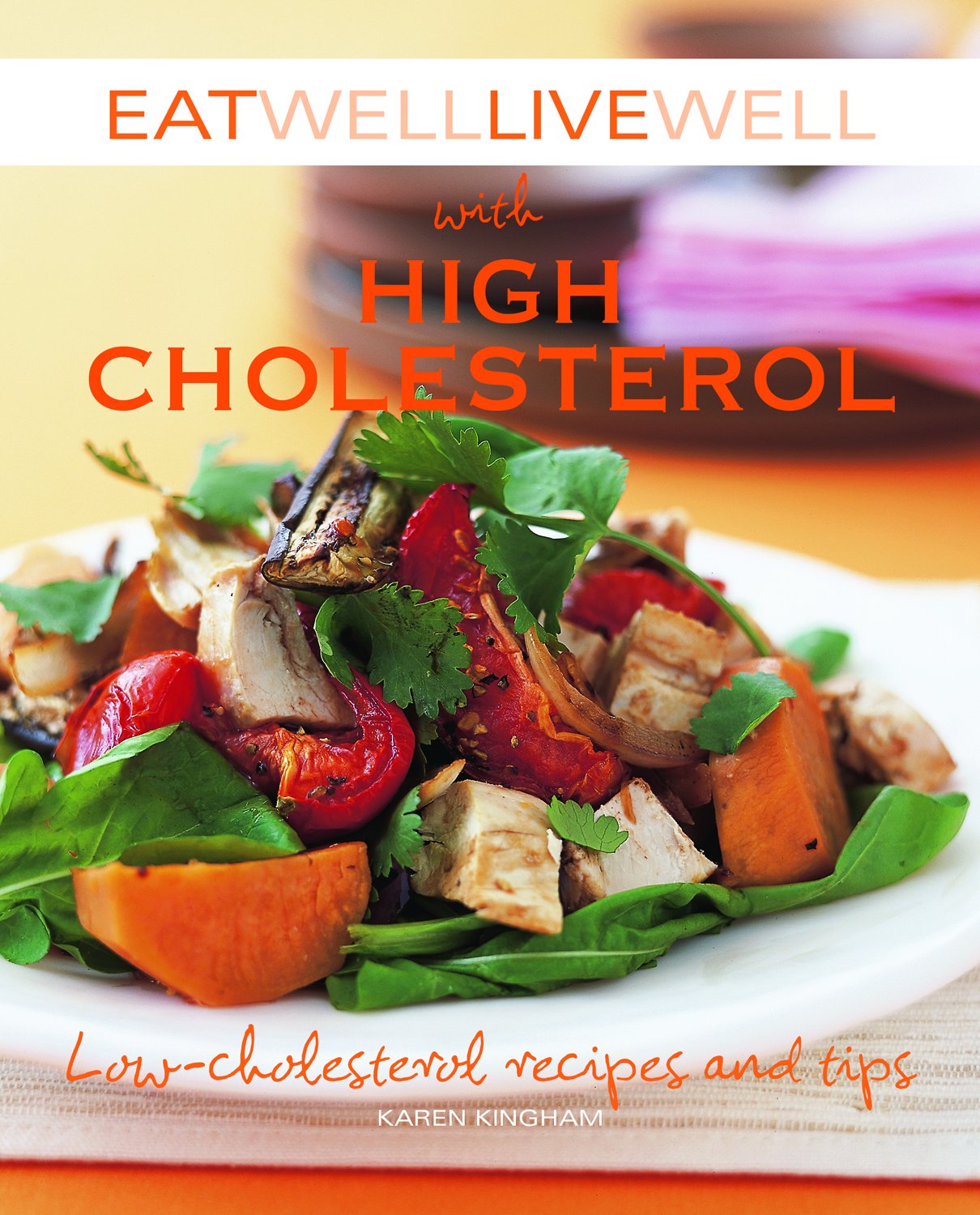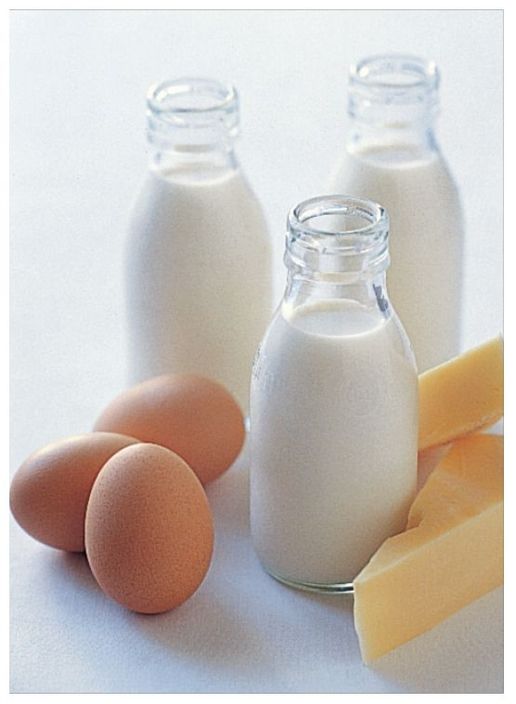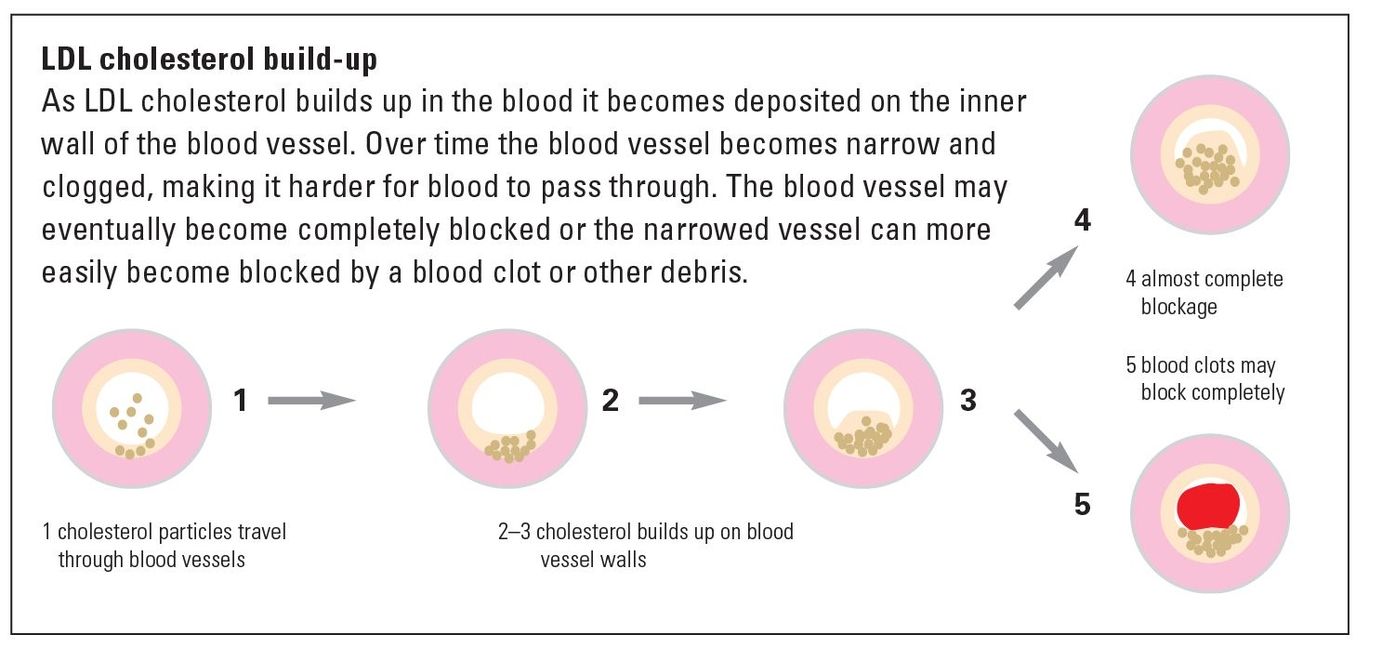High blood cholesterol is one of the major risk factors for heart disease, which can lead to heart attack or stroke. Simply put, the higher the cholesterol level, the greater the risk. Best estimates rank cardiovascular disease (CVD) as the leading cause of death in the Western world. The expectation is that CVD will become an even greater health problem, along with obesity and diabetes, by the end of the next decade.
What is cholesterol?
Cholesterol is a waxy, fatty substance made naturally, in amounts determined by your genetic make-up, by the liver. We all need a certain amount of cholesterol to make hormones, coat our nerve cells so signals travel properly, and form the outer membranes of our bodys cells. Cholesterol is not bad for us when we have it in the right amounts.
Our body also gets small amounts of cholesterol from the foods we eat, such as shellfish, meat, chicken, eggs, butter, cheese and whole milk. Foods with saturated and trans fats can upset the bodys cholesterol balance by causing your liver to make more cholesterol than it otherwise would.
Because cholesterol is a fat and cant dissolve in the blood, it must get to and from the cells via transporters or carriers known as lipoproteins, of which there are two types.
Low-density lipoprotein or LDL cholesterol: This is found in the greatest amounts and is the one you most need to worry about.
LDLs main job is to take cholesterol from the liver to the body cells where it is needed. Too much LDL causes a build-up of cholesterol on the inside of blood vessel walls which is not good for your health.
High-density lipoprotein or HDL cholesterol: This is the cholesterol you want to have more of. HDL tidies up excess cholesterol, picking it up from your blood vessels and taking it back to your liver.
The trouble with too much LDL cholesterol
Too much LDL cholesterol in your blood causes the excess to be deposited in the blood vessels. Over time, the cholesterol, along with other substances, builds up in the vessel walls, causing them to narrow and then hardenthink of the sludge you might get clogging up your drain pipes at home. This process is known as atherosclerosis.
Cholesterol deposited in the blood vessels is also more susceptible to a process known as oxidation. When LDL is oxidized, it becomes more irritating to the blood vessel, causing inflammation, which then accelerates the process of atherosclerosis.
Depending on your genes, diet and lifestyle, atherosclerosis can start as early as childhood and can become quite advanced by the time you reach middle age.
Atherosclerosis is involved in the progression of a number of diseases:
- Coronary heart disease occurs when the blood vessels to the heart are affected by atherosclerosis and can lead to angina (chest pain) or a heart attack.
- Cerebrovascular disease is caused by narrowing or blockages in blood vessels to the brain and can result in a stroke.
- Peripheral vascular disease is the result of narrowing or blockage of the blood vessels in parts of the body other than the brain or heart, such as the legs, arms, stomach, kidneys or other organs.
These diseases of the heart and blood vessels caused by atherosclerosis are collectively known as CVD, the number one cause of death for men and women in Western countries.
Your cholesterol target
If your blood cholesterol is high, your doctor will give you advice on the best level for which to aim. Regardless of how high your blood cholesterol is, the lower you get your LDL cholesterol, the better off youll be.
The American Heart Association recommends you keep blood cholesterol levels in the following range:
| Total cholesterol | less than 200 mg/dL |
| LDL cholesterol | less than 100 mg/dL |
| HDL cholesterol | more than 60 mg/dL |
What affects cholesterol levels?
In the Western world, there are a number of factors that may cause your cholesterol to rise. Some of these you can change, some you cant.
These are the factors you cant change
- Your age and gender: Blood cholesterol tends to rise as we get older and is usually higher in men than women, until after menopause. A womans cholesterol may quickly catch up to that of men of a similar age after menopause.
- Your inheritance: High blood cholesterol can run in families and your genes may put you at greater risk.
How common is high cholesterol?
Thirty to fifty per cent of adults in Western countries have high blood cholesterol. Despite knowing about the harmful effects of high cholesterol and understanding how easy it can be to lower it, the numbers of people with high blood cholesterol has changed little in some countries since the 1980s.
These are the factors you can change
- Your weight: The worlds population has become dramatically heavier over the past 20 years. Rates of overweight and obesity in Western nations have climbed to as much as 60 percent. And as our weight increases, so too is the likelihood that LDL cholesterol will be higher and HDL will be lower than is ideal.
- Your diet: Eating a diet high in saturated fat is one of the most significant causes of high LDL cholesterol. Major sources of saturated fat in our diet include butter, cream, cheese and other full-fat dairy products, the fat associated with meat and poultry (especially from skin), sausages, salami and other processed meats. Significant amounts are also found in many baked goods (cookies, cakes, pies, pastries), fried takeout foods and snack foods (chocolate, potato chips, corn chips and cheese-flavored snacks).

